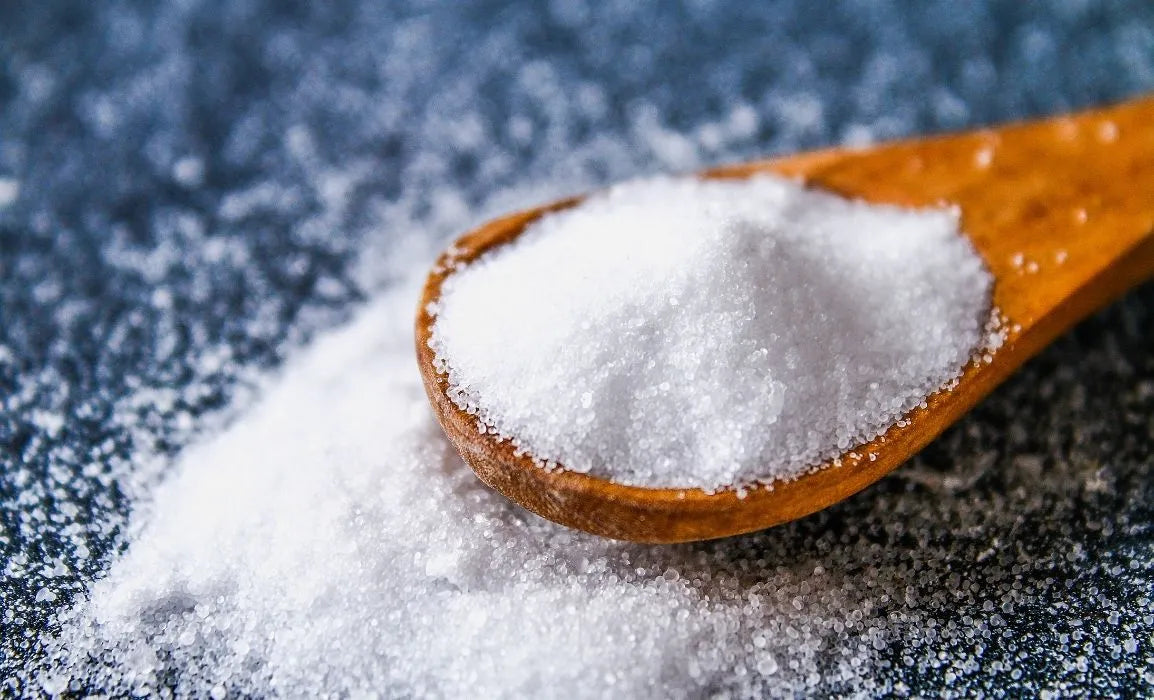Sodium Phytate in Skincare

Introduction
Sodium phytate, a synthetic salt derived from phytic acid, is utilised as a chelating agent in cosmetics to hinder metals from binding with water. This function is crucial for the maintenance of the formulation's composition. Additionally, sodium phytate is a hygroscopic powder that can draw moisture from its environment and is readily soluble in water.
What is sodium phytate?
The synthetic salt form of the antioxidant phytic acid is sodium phytate. Many plant tissues store phytic acid as phosphorus, which is stored primarily in the bran and seeds of plants. Rice bran organic acid is a phosphorus storehouse with high chelating abilities. Sodium phytate can scavenge mineral ions like calcium and magnesium but also maintain a balance between calcium and magnesium ion uptake by plant tissue.
What does sodium phytate do in skincare products?
Phytic acid, or sodium phytate, is a mineral-derived ingredient that forms the basis of many skin care products. It allows metals to be bound in stable complexes, which prevents them from damaging the skin and reducing product quality. The compound also acts as a strong antioxidant by shielding the skin from oxidative stress and environmental damage, both of which can lead to premature ageing. In addition, sodium phytate boosts other active ingredients’ performance by stopping metal ions induced decomposition. This means it gently exfoliates to provide smoother and glowing skin, shedding off dead cells gently on the stratum corneum, the outermost layer of dead cells in the skin. Consequently, sodium phytate benefits are desired in skincare because it improves product efficacy and gives a more youthful appearance to one’s complexion.
Sodium phytate benefits in skincare
There are a lot of sodium phytate benefits in the skincare industry. Some of them are mentioned below:
- Natural chelating agent: It is a kind of natural organic chelating agent that replaces disodium and tetrasodium EDTA in cosmetic formulations. It prevents the cosmetics from being subjected to undesired reactions catalysed by metals.
- Strengthens antioxidant performance: It could also be used as an antioxidant booster in combination with other antioxidants to handle metal-induced colouring and rancidity in formulations.
- Preservative potentiator: Cosmetic chelating agents are often used as preservative potentiators. Microorganisms need trace elements for cell wall synthesis, repair, and survival. The chelants in cosmetic preservatives bind these elements, making them unusable by bacteria, weakening pathogens, and enhancing cosmetic preservation.
- Skin moisturising: Sodium Phytate also has other advantageous effects on the skin besides its ability to bind metals. It makes the skin more hydrated and flexible.
- Balances oily skin: It regulates oily skin and can help reduce pores.
- Brightens skin: Besides having a skin brightening effect, this product also reduces cellulite.
Precautions while using sodium phytate
There are a lot of major precautions that should be taken into consideration when you are using products containing sodium phytate. Some of them are mentioned below:
- Patch test: Before trying out new products containing sodium phytate, you should undergo a patch test to ensure you do not get any reactions. Patch test the product on a small area of skin for 24 hours to determine if it will cause irritation or allergies.
- Skin sensitivity: If you have sensitive skin or frequent acne, keep an eye out for any reaction your skin has to the product. However, it is non-comedogenic as generally considered but can vary with individuals in terms of reactions.
- Avoid broken skin: Unless directed otherwise by medical professionals, these products should never touch broken skin.
- Eye contact: Using such products near your eyes is not recommended. In case this happens accidentally, wash well with water in that area.
- Consult with a dermatologist: Talk to your dermatologist before using new products containing sodium phytate if you have underlying skin concerns or existing conditions.
- Storage: Products such as creams and lotions that contain sodium phytates should be kept according to instructions and normally stored in cool, dry places away from direct sunlight so that their efficacy will not decrease.
Conclusion
In summary, sodium phytate preserves cosmetic formulations by binding metal ions and preventing them from harming other ingredients. Apart from that, it promotes other active components’ efficacy. On top of being an anti-ageing ingredient, sodium phytate works perfectly as an antioxidant on skin cells. It protects them against various environmental aggressors/oxidative stress, thus giving them a fresh look. Moreover, it possesses mild exfoliation properties, provides moisturisation and skin lightening. Nevertheless, it is important for you to do patch tests and avoid application on broken skin or near the eyes, while also seeking advice from dermatologists. The maintenance of the effectiveness of products with sodium phytate necessitates proper storage. Sodium phytate is very useful in skincare since it stabilises and improves the efficacy of cosmetics.


























































